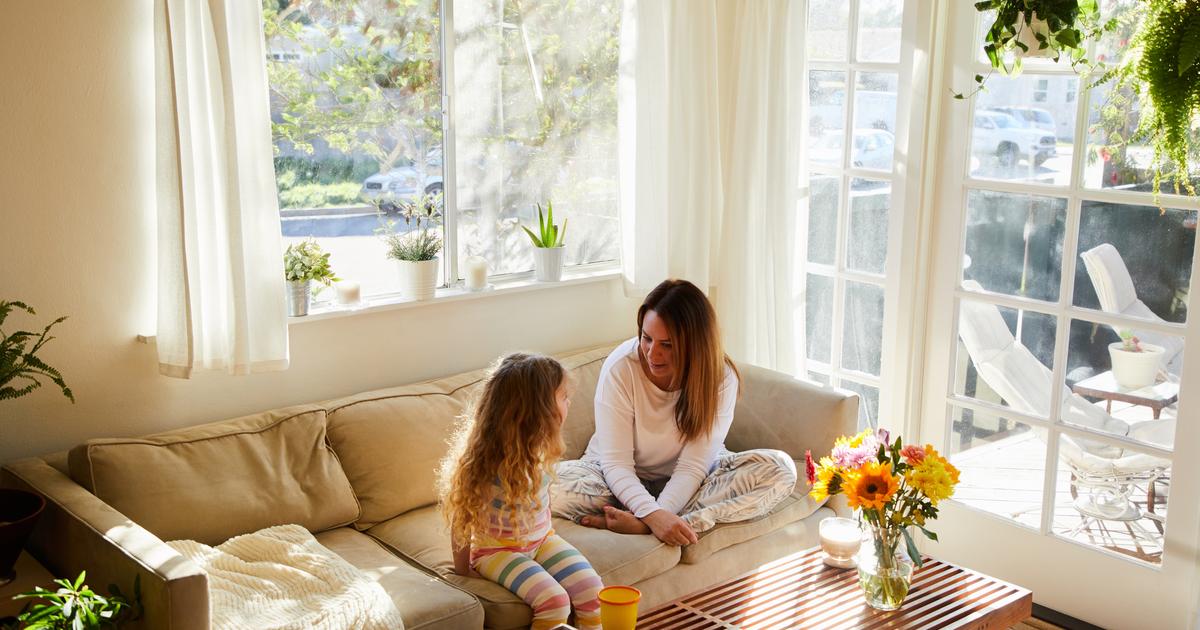Carmen Romero (Barcelona, 49 years old) is a child psychologist, expert in stimulation and early attention, certified educator in Positive Discipline and child sleep coach. It has online consultation and also face-to-face in Barcelona. He gives training for professionals and workshops for parents throughout Spain. She is an advisor of education and stimulation programs in early childhood education centers. His profiles on social networks – he has more than 140,000 followers on his Instagram account – are a reference on this subject. Recently, he has also published his first bookHow to stimulate your baby (Grijalbo). In its pages it summarizes in an entertaining and visual way the latest scientific knowledge on how the brain of the little ones is constituted and how it matures, so that parents and educators can help them cultivate all their talents.
It is a manual that explains why and how to stimulate development, what is the weight of genetics, the fundamental role of the environment, the needs that the baby must have covered to be able to develop fully, the basic learning of the first years, the difference with overstimulation. But, above all, what this guide offers are guidelines and activities to put into practice in a very respectful way the three main types of stimulation (physical, sensory and intellectual), which constitute the program that the author has been creating and adapting throughout her extensive professional experience.
Learn moreThings you don't know about the parents of your children's friends and should know
QUESTION. Are babies born needing stimulation or are they already stimulating themselves?
ANSWER. They are born with a need to be stimulated and nature is wise and offers a rich environment so that, naturally, they are stimulated. However, not always the environment and the environment is ideal. If there is no intention on the part of the caregiver, what can happen is that this environment is more impoverished and it is chance that decides how to enhance the possible skills that the baby, in principle, has to be able to be developed. We are all born with a potential to develop. Thanks to our experiences and contact with the environment, they will end up developing to a greater or lesser extent. Let's take music as an example. The child born with a gift for music must be exposed to a musical environment in which he can appreciate different auditions, stimulate the auditory aspects and have multiple pleasant experiences with instruments and musicians that allow him to develop his potential. Otherwise, getting it to shine musically would be miraculous. And most likely, he ended up being a person who enjoys music without going much further.
Carmen Romero (Barcelona, 49 years old) is a child psychologist, expert in stimulation and early attention, certified educator in Positive Discipline and child sleep coach. Grijalbo
Q. Are there any golden rules to get a good stimulation?
A. Yes, of course. There are and they are very important to succeed in stimulation activities. The first of all is that the baby has to be receptive, he has to have desire, he has to want to enjoy the activity with the caregiver. In addition, we must adapt to the needs of each baby. It doesn't work as all things for everyone. Each child has its own rhythm and we must take into account the stage of development in which it is and what the needs of the moment are. On the other hand, the caregiver should feel comfortable and at ease. Unfortunately, this is not always the case, the daily rhythm can affect our desire to play and be in an active, positive way, with children. The schedule and duration of the activities is of utmost importance so that the little one is receptive. We must always finish before he asks us to. In addition, you have to know that the best time to keep the attention of the little one is usually the mornings, after the great sleep of the whole night. We must not forget that before intervening we must make sure that the baby is rested, neat and well fed. Otherwise, it will be practically impossible to achieve a positive interaction.
Q. Can they be stimulated since they are newborns?
A. The baby from birth receives natural stimulation. Stimulation is necessary for survival reasons. You need to know your new environment urgently. Your brain is creating neural connections, especially in the first year, at the speed of a rocket. Everything is new, everything interests you and you need to know to continue living in a safe environment. We must bear in mind that the brain is built only once and that happens the first years of life. Babies receive stimulation naturally throughout the day. The senses are their main means of stimulation and thanks to contact with the environment they receive different stimuli. Scheduled stimulation should not be earlier than two or three months. We must respect the first stage of his life to facilitate his adaptation to the new world. For the newborn, the stimuli he receives naturally are a great bombardment. The voice of the parents and noises of the environment, the lights and contrasts that you can visualize, the smell of the mother, of the milk and of the products of care and contact is enough. However, it is important to know which aspects to enhance and which others to avoid so that it develops harmoniously. Contact with their caregivers will give way to strengthening an affective bond, maintaining schedules, routines ... From then on, you can begin to introduce small exercises and activities that will enhance your good development.
View this post on Instagram
A post shared by Carmen Romero (@carmenromeropsico)
Q. Do babies who have older siblings develop their abilities earlier?
A. Without a doubt. Babies with older siblings have a much richer, more stimulating environment. Naturally there is play, movement, music, interactions. It is true that, without the caregiver having to make great efforts, the child receives a lot of stimulation. On the contrary, when a first child arrives at a house, the parents have little experience, they have a lot of insecurity, the environment is much calmer and more protective. It is not comparable to the environment where there are more children.
Q. What are the main doubts about parents in your consultation?
A. Today's parents are usually very well trained and very informed, also in their own professions, so they are also interested in their children developing in the best possible way. They want to know what their children need and what model they should follow in parenting, education and stimulation. The models we have had so far no longer serve us and that is why they usually go to professionals. The biggest difficulties that arise in consultation are on the subject of sleep, lack of limits and the management of tantrums. Knowing how to implement the first limits costs them a lot and for all that you have to learn, it is not easy to do it without having a very clear methodology that allows you to do it in a positive and respectful way.
Q. Are there traits in a baby's behavior that should be alerted?
A. In the development of the baby from birth there are what are called milestones – such as keeping the gaze at two months or four months, smiling on your own initiative to attract attention, among others. There are several and they are reached during the first years of life. It is true that the acquisition of these milestones involves a certain flexibility because each child has its own rhythm, each child is unique, each environment is also different, the family, the culture, and so on. But, broadly speaking, there are some tempos that are important to take into account and that are fulfilled one after the other. We must take into account all those warning signs that give us a lot of information and every 12 months we must review. Not so much worrying, but busy to see what has been achieved and what has not. And, if we see any difficulty, offering an adequate stimulation program, makes the child one day touch the stars.
You can follow Mamas & Papas on Facebook, Twitter or sign up here to receive our biweekly newsletter.


/cloudfront-eu-central-1.images.arcpublishing.com/prisa/YU6JYS64KNDZNHHGXA3QMTYNGY.jpg)


/cloudfront-eu-central-1.images.arcpublishing.com/prisa/ENOKQHD33NAGRAFBPP45GKFJGM.jpg)



